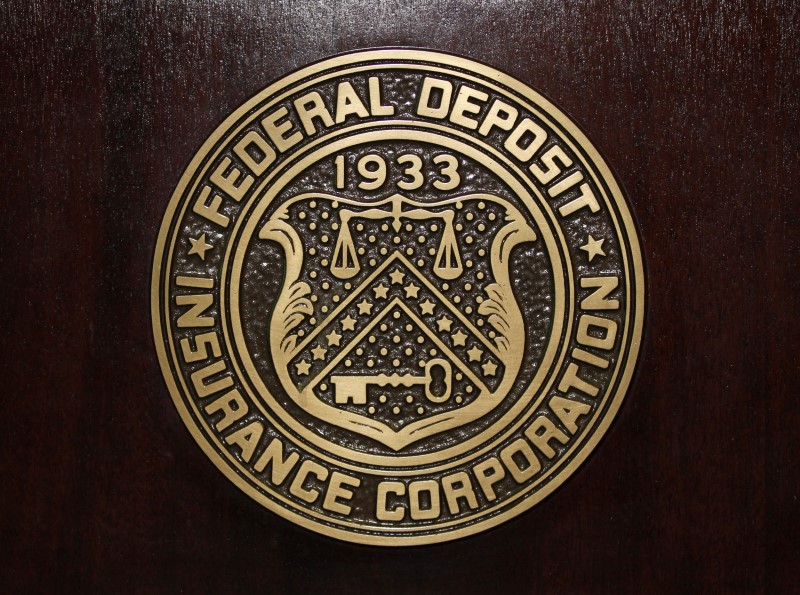 © Reuters. The Federal Deposit Insurance Corp (FDIC) logo is seen at the FDIC headquarters in Washington
© Reuters. The Federal Deposit Insurance Corp (FDIC) logo is seen at the FDIC headquarters in Washington2/2
By Michelle Price
WASHINGTON (Reuters) – President Donald Trump’s pick to lead a key U.S. banking regulator vowed on Tuesday to address the “hold-up” in issuance of special lending licenses, potentially paving the way for companies like Wal-Mart Stores (NYSE:) and fintech firms to enter the banking sector.
Fintech firms are closely watching to see if Jelena McWilliams, nominated to head the Federal Deposit Insurance Corporation (FDIC), will end the regulator’s informal moratorium on issuing Industrial Loan Company (ILC) licenses – one of the few ways non-bank companies can move into deposit-taking.
In testimony before the Senate Banking Committee on Tuesday, McWilliams said she believed such licenses, which are overseen by the FDIC, did not pose a threat to the safety of the banking system and added that she would ensure the FDIC moved “swiftly” to consider ILC license applications.
“If it meets the ILC standards as currently set up by the FDIC, I believe there should be no obstacles in the application program,” she said.
The issuance of ILCs to the likes of car manufactures and supermarkets has been a controversial issue after the FDIC rejected Wal-Mart’s 2005 application amid strong opposition from community banks who claimed the world’s largest retail chain might use the license to expand into other financial services.
Issuance of ILC licenses was restricted by the 2010 Dodd-Frank financial reform law, which sought to prevent banks from making the kind of risky bets that led to government bailouts during the 2007-2009 global financial crisis.
That particular Dodd-Frank restriction expired in 2013 but the FDIC, which protects customer deposits in U.S. banks, has not yet issued an ILC license.
Fintech firms such as payment processor Square Inc (NYSE:) have applied for such a license, but community banks have argued that granting one would pose a risk to the financial system.
The debate over mixing banking with commerce was reignited in November after Keith Noreika, the then-acting comptroller of the currency, said the restrictions reduced competition and concentrated risk among a smaller number of players.
Fusion Media or anyone involved with Fusion Media will not accept any liability for loss or damage as a result of reliance on the information including data, quotes, charts and buy/sell signals contained within this website. Please be fully informed regarding the risks and costs associated with trading the financial markets, it is one of the riskiest investment forms possible.
Source: Investing.com






























